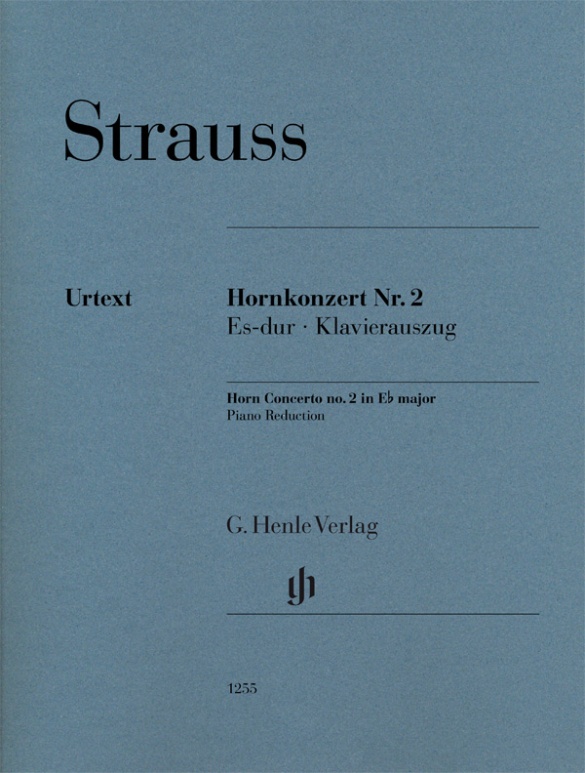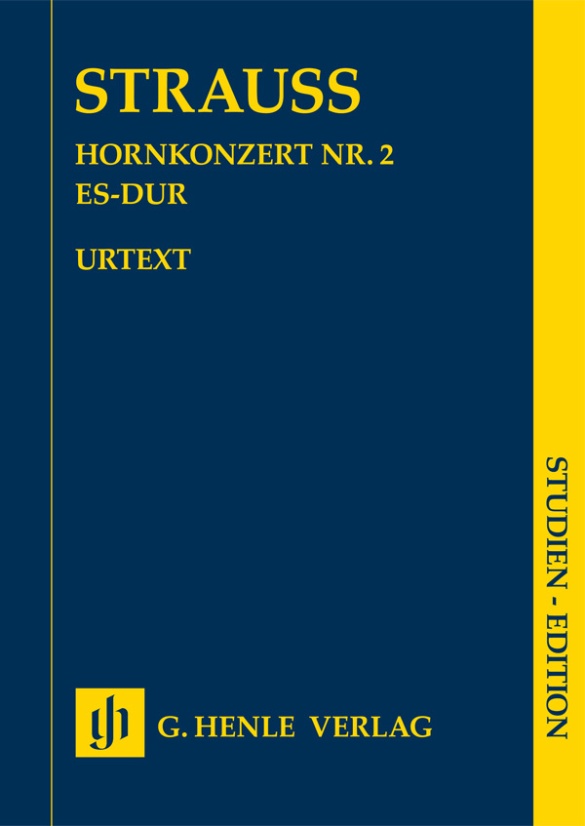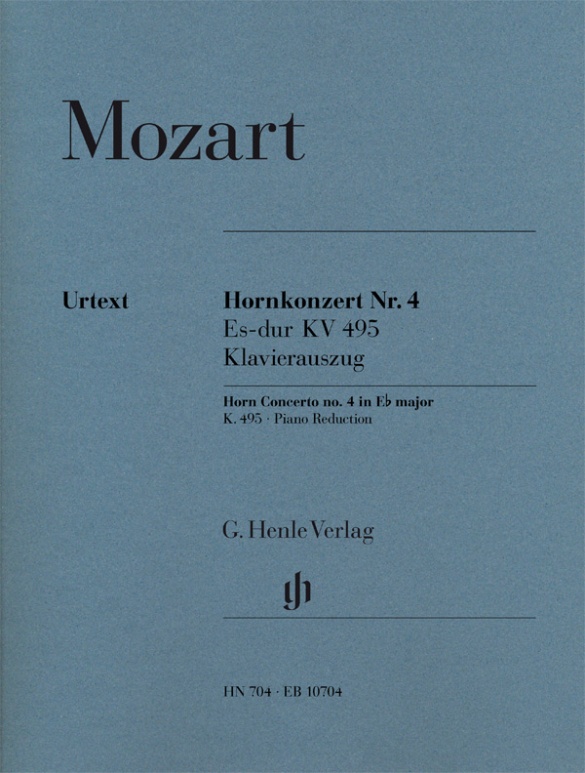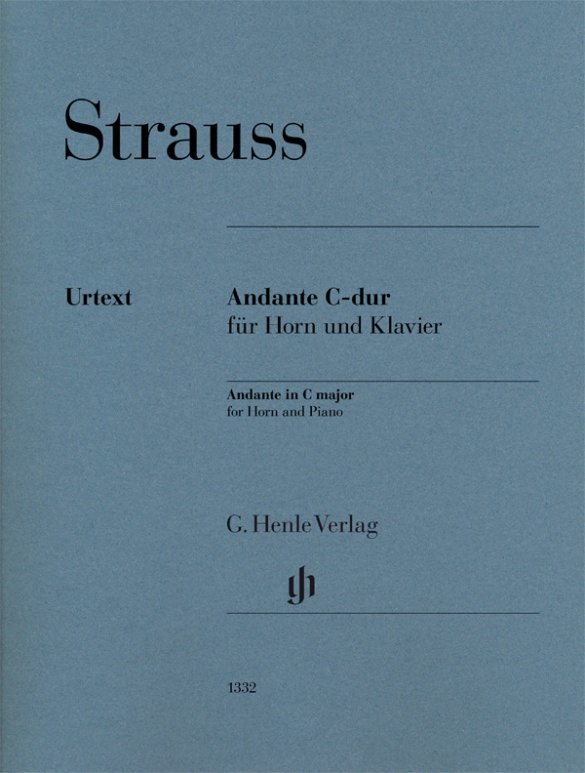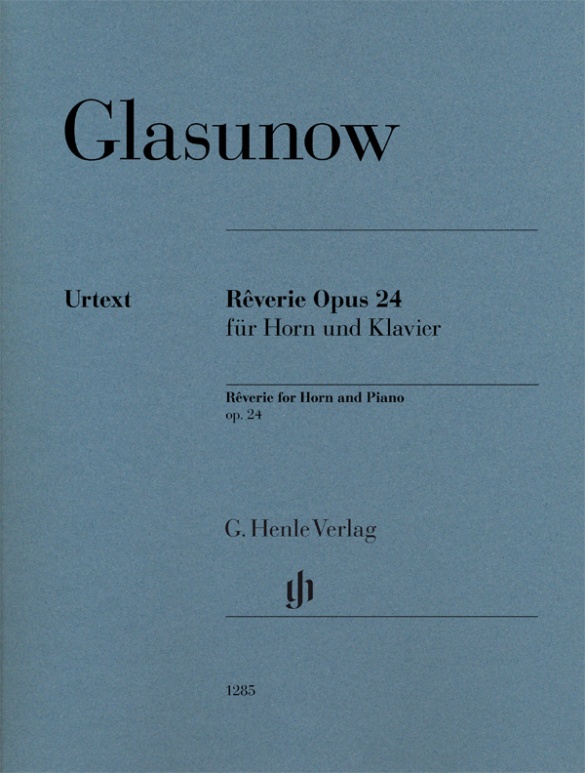

Alexander Glazunov
Rêverie op. 24
As a composer, Alexander Glazunov was as at home in the late Romantic symphony as he was in chamber music forms. His shorter solo pieces impress on account of their enchanting melodies and their attention to detail, which is also true of the Rêverie for horn and piano. Glazunov was himself a good horn player and played in several orchestras as a young student. It was at this time that Glazunov composed this highly romantic work in which he showed off the melodious qualities of this instrument to their best advantage. It is an effective recital piece, even for advanced pupils, and is being published for the first time as an Urtext edition; alongside the first edition we also consulted Glazunov’s autograph in the National Library of Russia in St Petersburg for the first time.
Content/Details
About the Composer
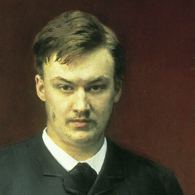
Alexander Glasunow
A Russian composer and conductor, whose works are distinguished by diverse stylistic features. His music is also characterized by the use of folkloric elements, typical of the St. Petersburg tradition. His works include eight symphonies, concerti, chamber music, songs, and stage works.
| 1865 | Born in St. Petersburg on August 10, the son of pianist Elena Pavlovna. As a child he learns piano, viola, and cello. |
| from 1877 | He receives instruction in harmony and other subjects. |
| 1880 | At the suggestion of Mily Balakirev, he becomes a pupil of Nicolai Rimsky-Korsakov on January 4. |
| 1882 | On March 29 his first symphony is premiered at a concert of the Free School of Music. Enamored by it, Mitrofan Belyayev becomes his patron. |
| 1884 | At Belyayev’s initiative, his symphony is performed once more, in Weimar, where he also meets Franz Liszt. A tour through France, Morocco, and Spain ensues. |
| 1889 | He conducts his own works at the Paris Exposition Universelle. |
| 1899 | He becomes professor of orchestration at the St. Petersburg Conservatory. |
| 1904 | He writes the Violin Concerto in A minor, op. 82. |
| 1905–30 | Director of the St. Petersburg Conservatory. In times of political turbulence, he endeavors to preserve the autonomy of the conservatory and to maintain musical exchanges with the West. |
| 1907 | He is awarded honorary doctorates in music by Oxford and Cambridge universities. |
| from 1928 | He travels to Vienna to attend a Schubert competition as a jury member, after which he settles in Paris. He receives engagements as a guest conductor in Europe and North America. |
| 1936 | Dies in Paris on March 21. |
About the Authors
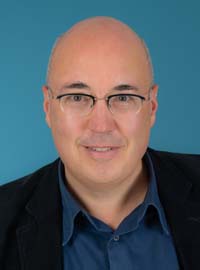
Dominik Rahmer (Editor)
Dr. Dominik Rahmer, born in 1971 in Mainz, studied musicology, philosophy and maths in Bonn. He did his Magister Artium in 1999 and his doctorate in 2006 with a thesis on the music criticism of Paul Dukas.
From 2001 to 2011 he was employed at Boosey & Hawkes/Bote & Bock in Berlin, where he also worked on the Critical Edition of the Works of Jacques Offenbach (OEK). Since 2011 he has been an editor at G. Henle Publishers in Munich, with a particular focus on French and Russian music and works for wind instruments.

Klaus Schilde (Fingering)
Prof. Klaus Schilde, born in 1926, spent his childhood in Dresden. There he was greatly influenced by Walter Engel, who taught him the piano (Kodaly method), composition and violin. From 1946–1948 he studied at the music conservatory in Leipzig with Hugo Steurer. After moving to the west in 1952 he studied with Walter Gieseking and Edwin Fischer, as well as with Marguerite Long, Lucette Descaves and Nadia Boulanger in Paris.
Schilde won numerous prizes. From 1947 onwards he gave concerts as a soloist and chamber musician on almost every single continent with renowned orchestras. He taught at the music conservatories in East Berlin Detmold, West Berlin, Munich, Tokyo (Geidai) and Weimar. From 1988–1991 he was President of the Staatliche Hochschule für Musik und Theater in Munich, where he also taught for decades as a professor. There are numerous radio and television broadcasts with Klaus Schilde as well as CD recordings. Schilde has contributed fingerings to almost 100 Henle Urtext editions.
Prof. Klaus Schilde passed away on 10 December, 2020.
Product Safety Informations (GPSR)

G. Henle Verlag
Here you can find the information about the manufacturer of the product.G. Henle Verlag e.K.
Forstenrieder Allee 122
81476 München
Germany
info@henle.de
www.henle.com
Die Ausgabe ist sehr sauber gedruckt. Die Papierqualität ist exzellent. Auch durch die detaillierte Forschungsarbeit ist hier eine Urtextausgabe zur Freude eines jeden Hornbläsers erschienen.
Das Orchester, 2016recommendations
autogenerated_cross_selling
Further editions of this title
Further editions of this title


